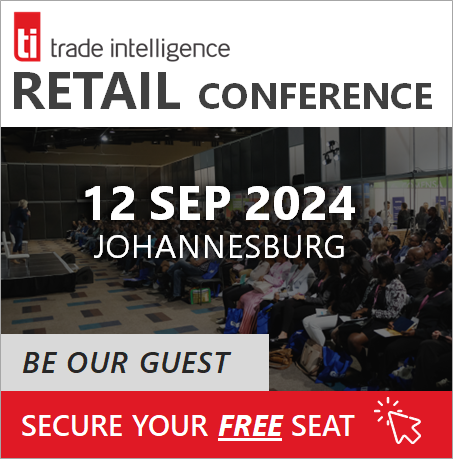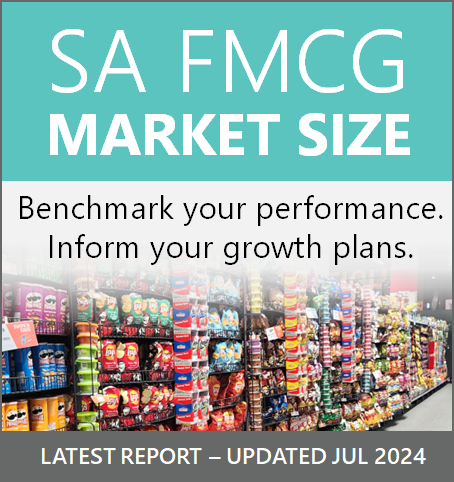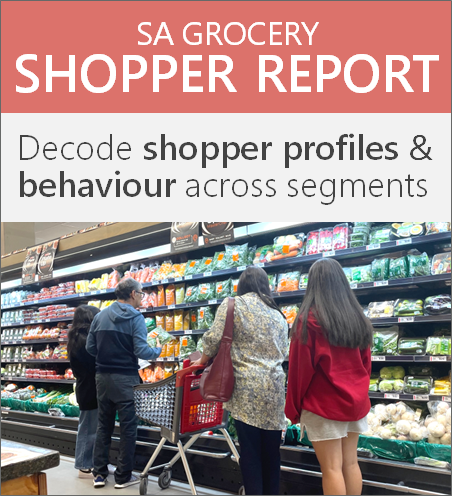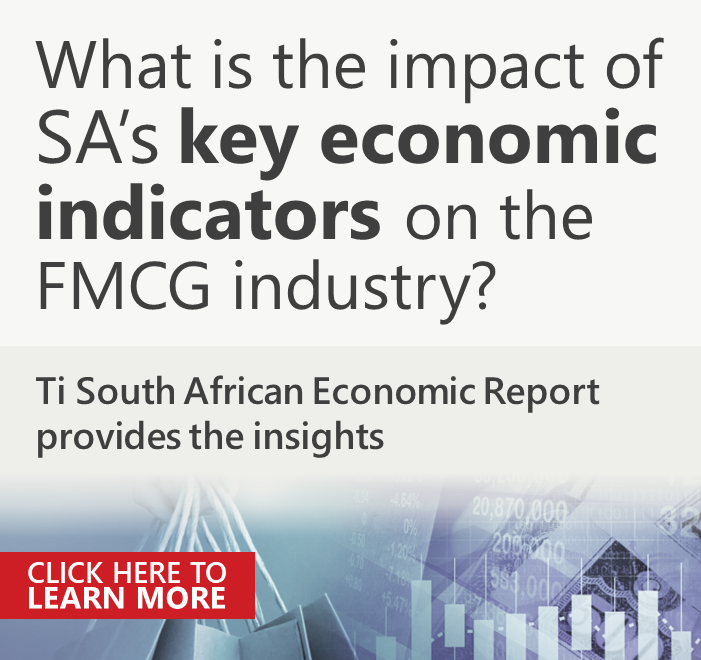
THIS ISSUE: 18 Feb - 24 Feb
Welcome indeed to another week in this great industry we call home, where the often tardy pace of revenue growth is outstripped by the invigorating clip of innovation, particularly in the area of sustainability. And big news this week is the now imminent acquisition of Distell by Heineken, which will fundamentally alter the balance of power in the beverage sector. Enjoy the read.
YOUR NUMBERS THIS WEEK
RETAILERS AND WHOLESALERS
-
SPAR Topping out
A big old trading update from the Verdant One, for the 18 weeks through January, and it’s fairly solid, with total sales in Southern Africa up +8.2% year-on-year, and Group turnover up +5.8% to R45.5bn. One of the big drivers of this growth was TOPS, which saw sales surge +56% in the period during which there was no lockdown. Last year, the business lost 58 trading days over the same 18 weeks. The core grocery wholesale business increased sales by +3.7%. In other SPAR news, the business will soon launch its very own online grocery delivery, Spar2U, which will initially be running out of selected Joburg stores. SPAR, you would be correct to point out, is the last of the major Groups to offer grocery delivery. But then, it has both unique challenges and unique opportunities in this regard: “We believe that the SPAR business model requires an online shopping solution that serves our SPAR consumers but one which also will add value to our independent retail partners and the communities in which they operate,” observes CEO Brett Botten.
Comment: SPAR will be surely looking for a recovery in its core grocery market as the year progresses.
-
-
Pick n Pay Superising? (No. Ed)
What’s up with Pick n Pay in Zimbabwe? Let’s ask Meikles, which jointly runs TM Supermarkets with Pick n Pay. “Sales volumes at the supermarkets segment increased by 32% and 29% for the quarter and nine months to December, respectively, relative to the same period of the previous financial year,” says the Group, which recently listed a separate agro-processing unit on the Zimbabwe Stock Exchange. The Zimbabwe chain is continuing to invest in store openings and upgrades, with a couple of new supers opening towards the end of last year and more apparently to come in the next six months. And the development of new malls in Harare and elsewhere is creating fresh opportunities for growth. Back home, in the meantime, Pick n Pay’s market share holds steady at 16% in the face of stiffening competition from Shoprite.
Comment: The emergence of Zimbabwe from the basket case years, and its potential reinstatement as a regional breadbasket will surely hearten Pick n Pay, which has hung on admirably.
-
-
In Brief Cashing out
A very impressive trading update from Dis-Chem Pharmacies which recorded revenue growth of +15.3% to R12.7bn in the 21 weeks through January, opening seven new stores in this period. “We continue to trade well, with market share gains across all core categories, supported by further normalisation in gross margins,” says CEO Ivan Saltzman. “This is being driven by a shift in consumer dynamics and a sustained return to regional shopping malls, where many mature Dis-Chem stores are located.” Over to Massmart, which has entered a JV with Mastercard that enables small traders to purchase POS devices at discounted prices in an endeavour to help them recover from both the effects of lockdown and last July’s social unrest, during which time many of them lost their POS capacity. 64% of South Africans say that they have reduced or eliminated their use of cash since the beginning of the pandemic. And finally, a shout out to the Kit Kat Group, whose second R1m Kit Kat Group Pro-Am tournament which has drawn a respectable field of Sunshine Tour players, will be played sometime later this year after rains earlier this month closed the Irene course where it was to be played.
Comment: Are Kit Kat the fabled Seventh Retailer of which poets have sung? Wait and see.
-
-
International Retailers Bolted on
Tesco has removed more than one and a half billion pieces of plastic from its UK business since 2019 when it launched its 4Rs packaging strategy, by which such waste is ‘removed, reduced, re-used, recycled’. The savings include more than 200 million bags removed from Tesco.com deliveries, 14 million plastic chicken trays, and 42 million plastic forks. Across the pond, Walmart reports that revenue grew a modest +2.4% to $572.8bn for the year through December, affected negatively by around $32.7bn in sales lost through divestments. Online sales were up +11% year-on-year and an absolutely bonkers +90% since 2020. In other Walmart news, the Big Feller is piloting a fleet of GM’s Chevy Bolt electric autonomous vehicles to eventually remove both emissions and people from its home delivery service. And over to La Belle France, where software and robotics outfit Ocado has entered a JV with mass-market retail firm Groupe Casino for the development and management of single or multi-tenanted customer fulfilment centres.
Comment: A interesting model, perhaps, for some of our larger wholesalers? Even a Massmart?
MANUFACTURERS AND SERVICE PROVIDERS
-
Distell Cheers!
So it’s done: Distell shareholders have voted to accept an offer by Heineken for the purchase of the business for R38.5bn, a sum considered by some analysts to be less than princely. The deal will split Distell into two businesses, follow closely. Firstly, its cider and other ready-to-drink beverages as well as spirits and wine brands will form a new business, which will be combined with Heineken’s Southern African business and the Dutch group’s interest in Tafel and Windhoek owner Namibia Breweries Limited. Then, its shares in Capevin – which contains Distell’s wines, including Durbanville Hills and Late Harvest, and its Scotch whisky unit – will be unbundled, with Distell shareholders offered R15 per share. With 30% shareholder Remgro on board, the thing was a done deal, and shareholders will achieve around R180 per share in total for their investment. Heineken now owns the world’s second biggest cider producer, and an iconic South African business.
Comment: We wish them well, and look forward to seeing how they’ll bring our great brands to a global market.
-
-
In Brief Space dogs
A consortium consisting of PAPE Fund Managers and Kanaka Chemicals has just put in a successful bid for the acquisition of a 70% equity interest in the household and personal care businesses of Libstar, comprising the Contactim and Chet Chemicals divisions. Unrelated, but globally, multinational beverage giant, The Coca-Cola Company, has set a target to have at least 25% of all of its beverages sold in refillable or returnable glass or plastic bottles, or in refillable containers through traditional fountain or Coca-Cola Freestyle dispensers by 2030. And mainly unrelated, but very cool, Mars Africa, which brings brands like Pedigree, Whiskas, Snickers and Orbit to market, has reopened its newly renovated local head office in Woodmead, with a brand new ‘pet office’ so that employees can bring their dogs to work, after two years in which they became more accustomed to being around their people. The new digs also introduces collaborative workspaces and a new working method, Future of Work, that prioritises the individual needs of associates.
Comment: Brilliant stuff from Coke and Mars.
TRADE ENVIRONMENT
-
Retail in Africa A Continent Called Hope
Joining our own speakers on the virtual podium at last week’s Retail in Africa webinar was Feyi Olubudon, Nigerian author of ‘The Villager: How Africans Consume Brands’, and one of the leading authorities on the African marketplace. He came in strong, talking up the youth of our continent’s population, then sharing in detail the Village Map, a framework he has developed to articulate the culture of the African consumer. He explored our core motivations – one of which is hope. “The African is not African without hope,” he says. “Hope is amplified, and brands have to use hope to communicate.” When marketing to Africans, he says, you need to consider our identity, the journey we have taken to get to where we are, our ambition, our aspirations, and our functional tribe. If when marketing branded goods at retail on our continent you take the appropriate cues and cultural elements into account, he says, you can increase your brand patronage by 65% at point of sale.
Comment: Important, compelling, and ground-breaking work in a market that everyone needs but few businesses truly understand. And for more on how to succeed on this great continent we call home, have a look at our Retail in Africa Report.
Sign up to receive the latest SA and international FMCG news weekly.
Tatler Archive
“Outside of a dog, a book is a man's best friend. Inside of a dog it's too dark to read.”







1.png)
